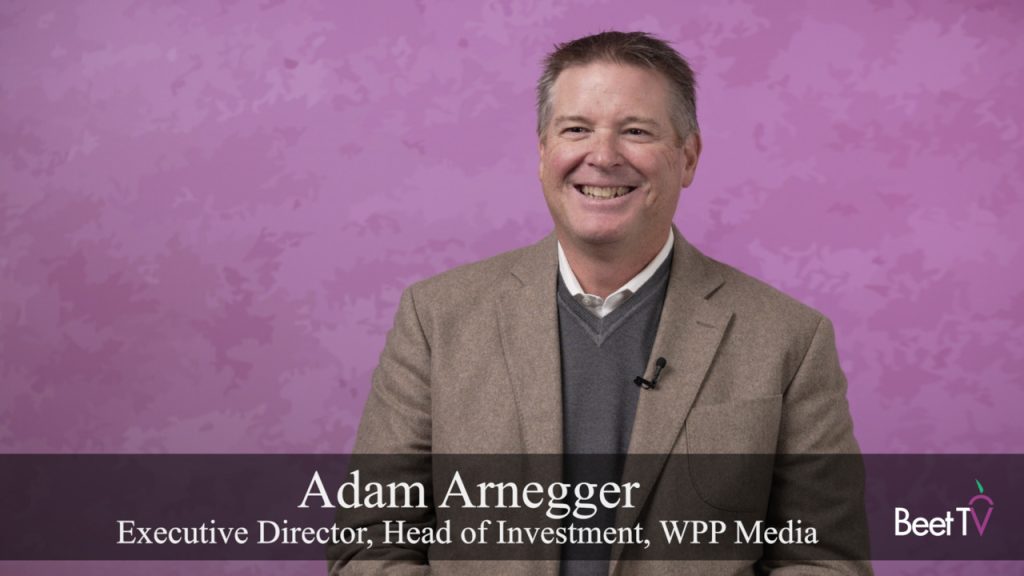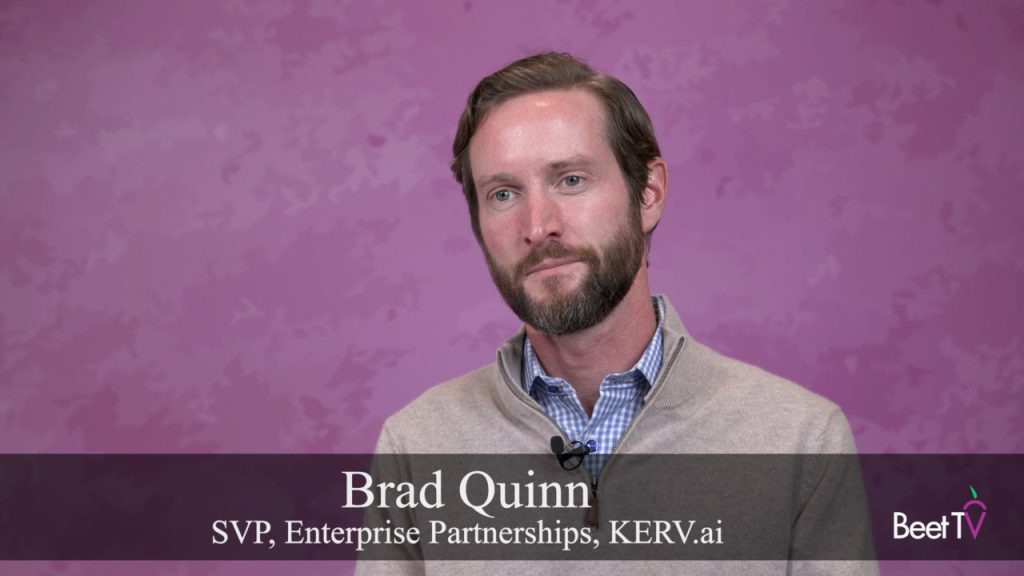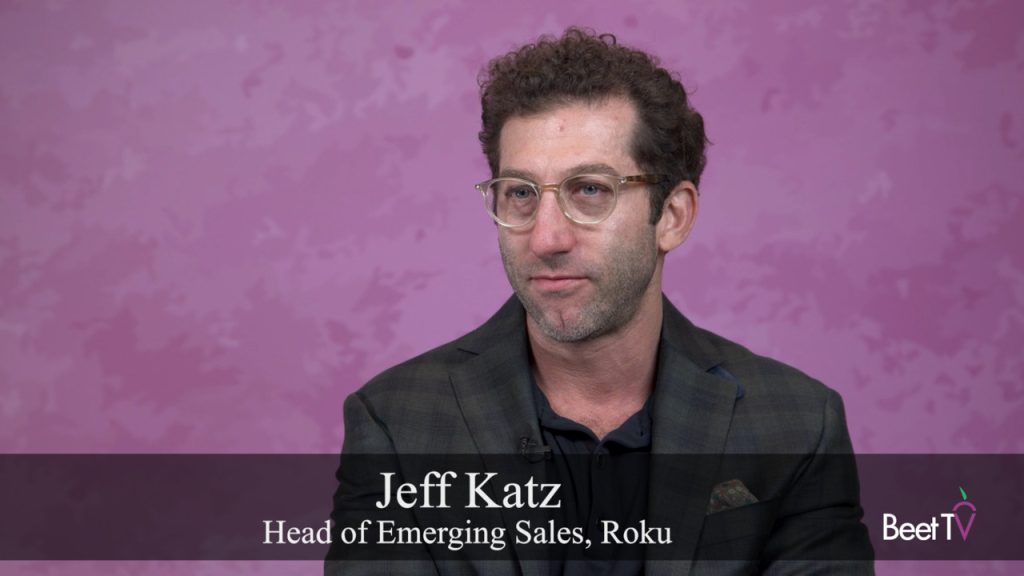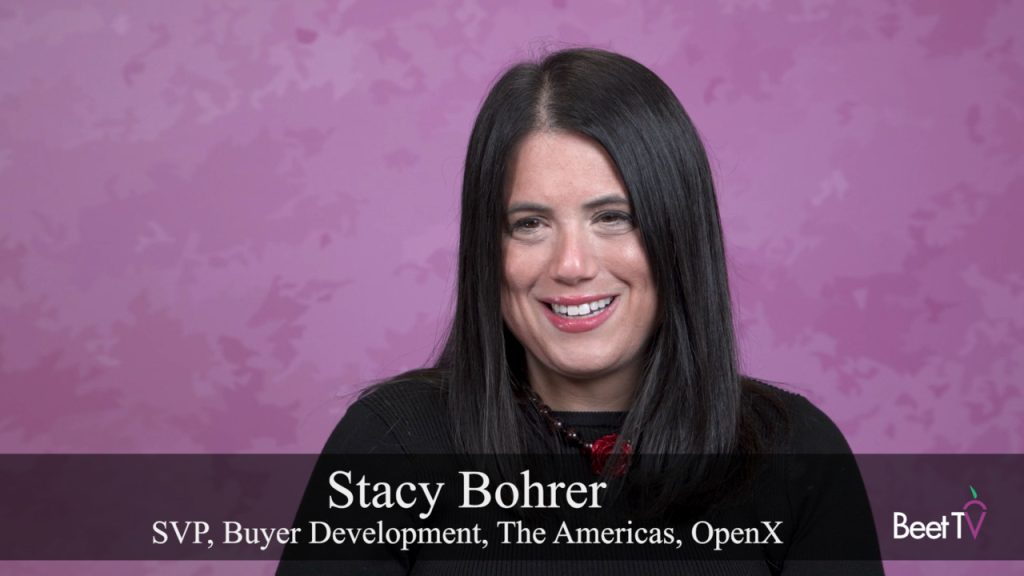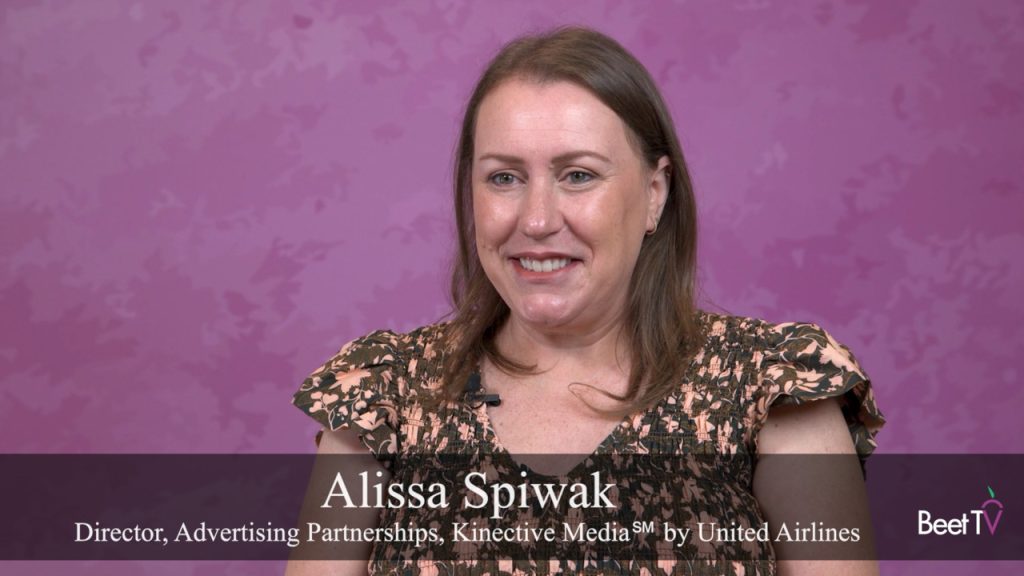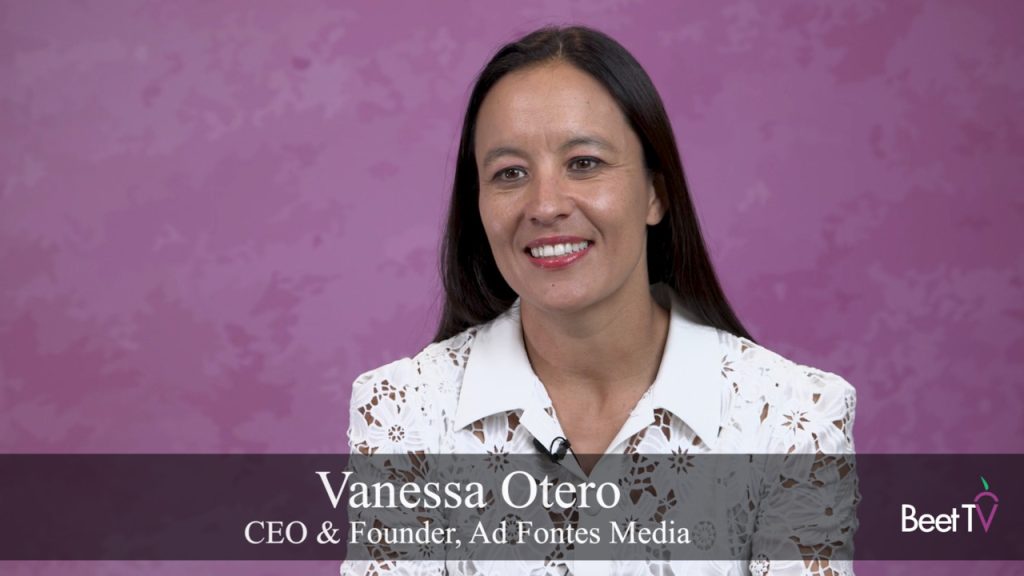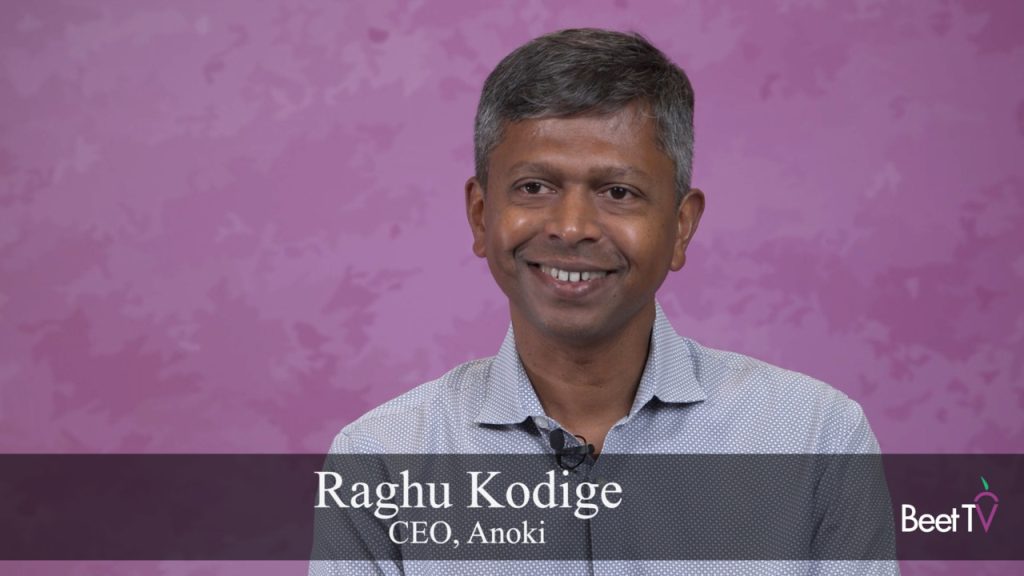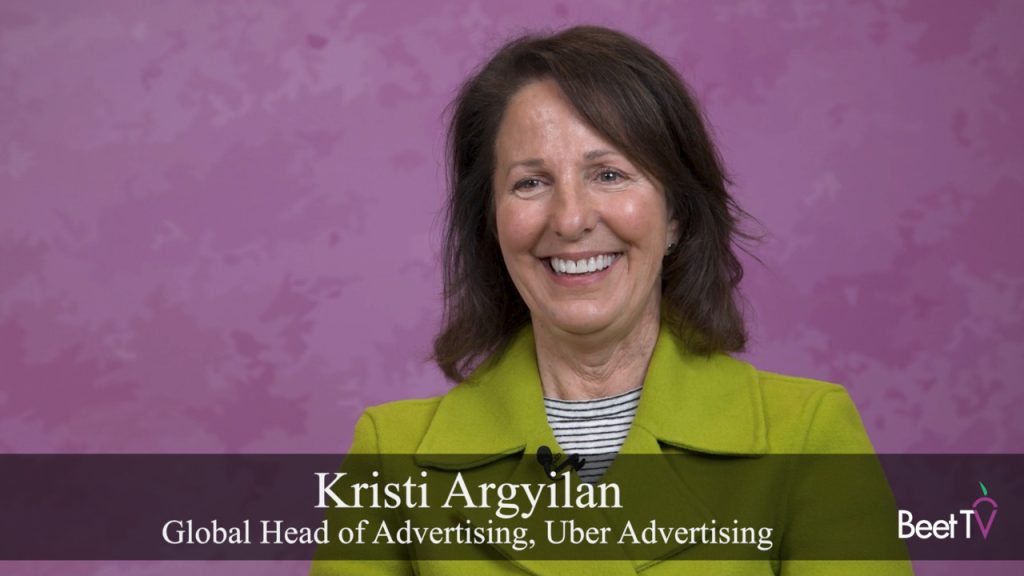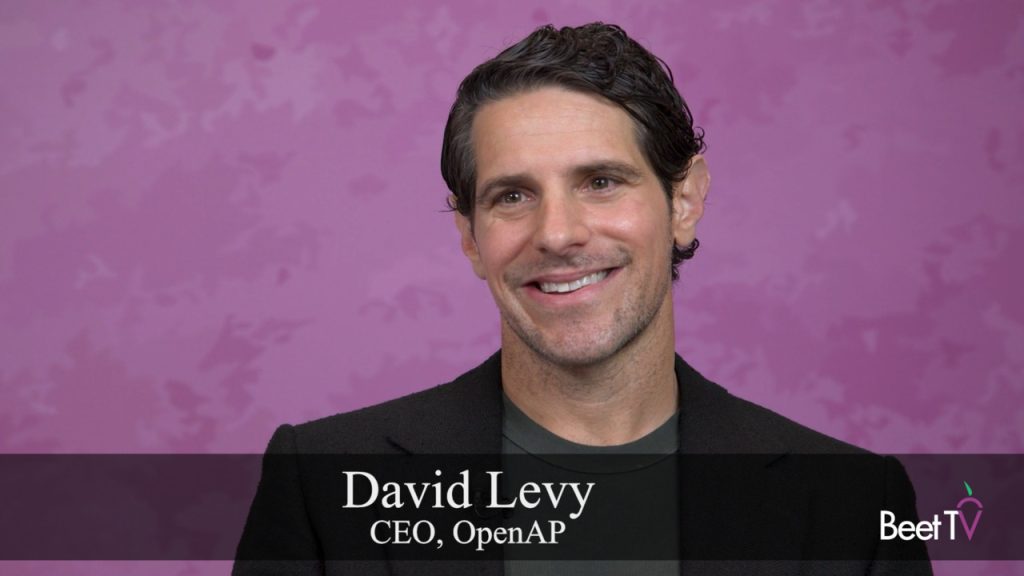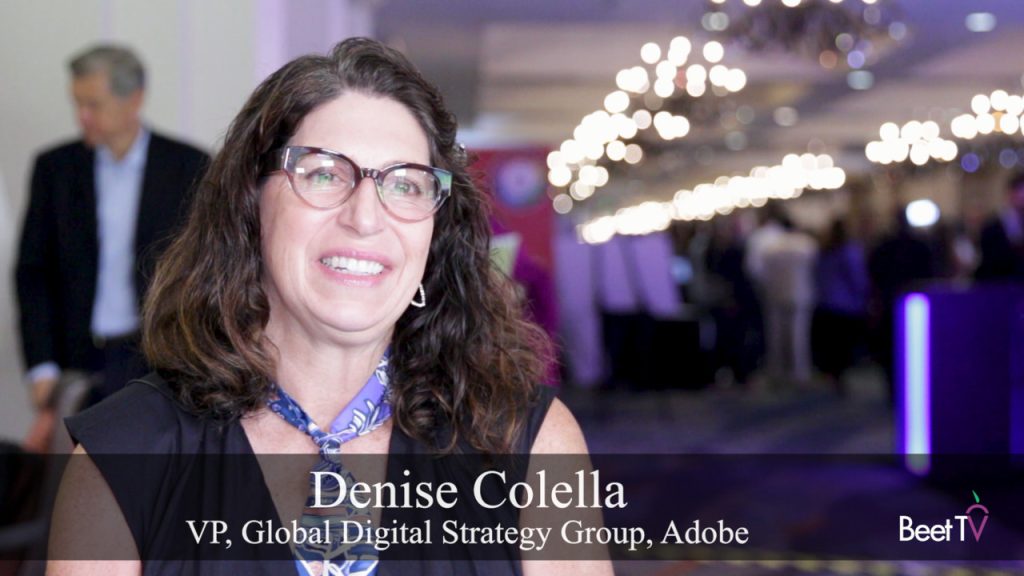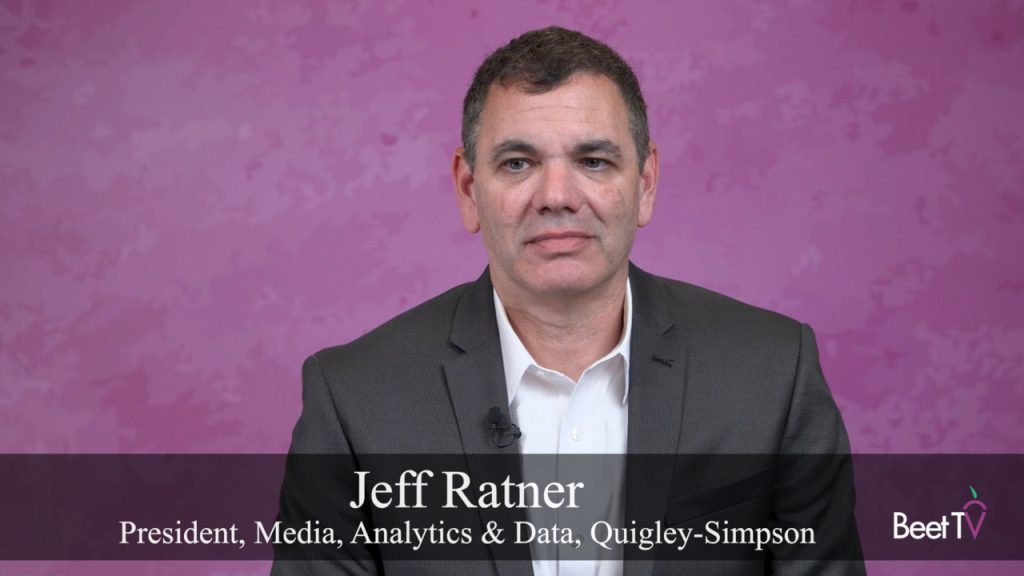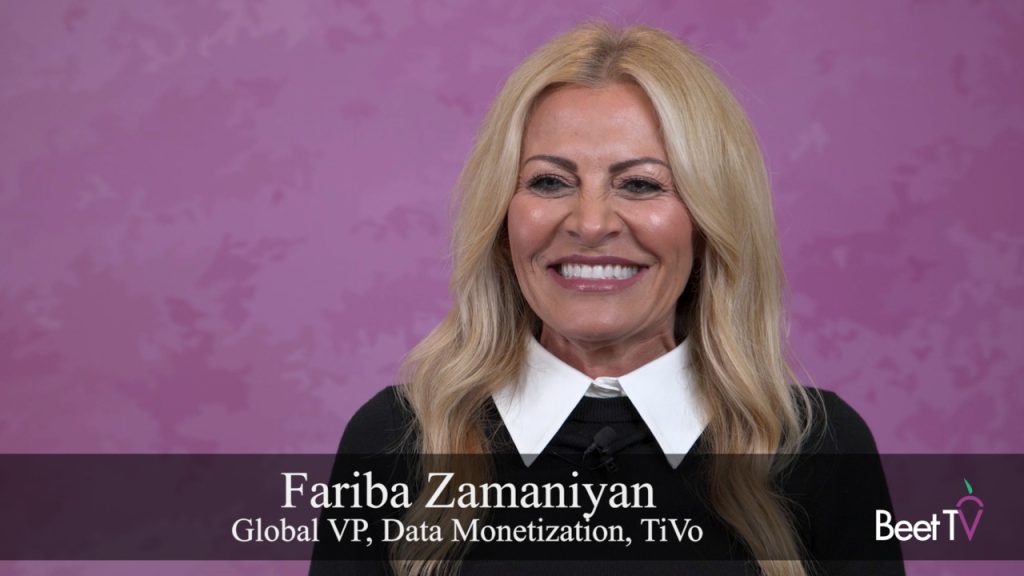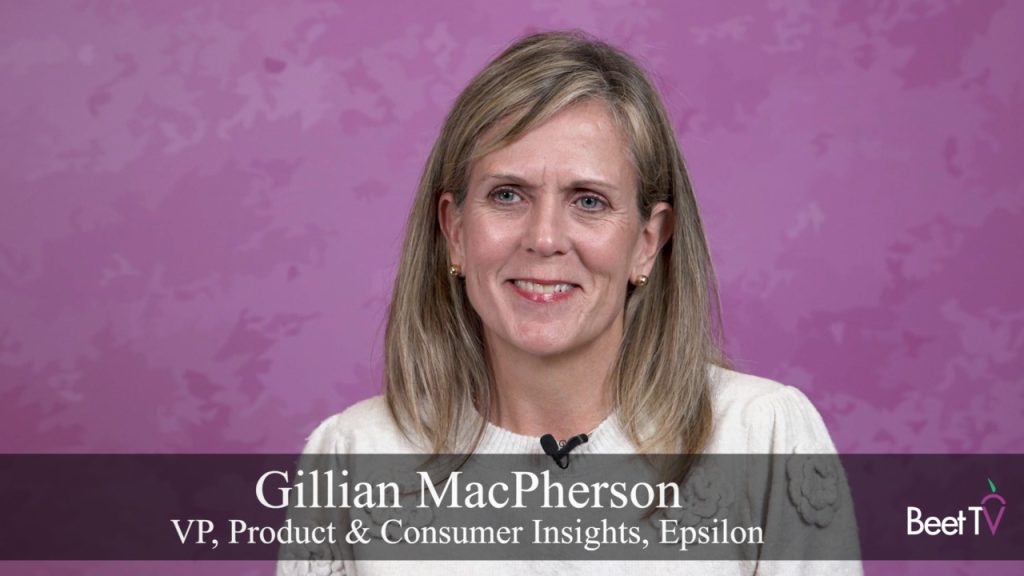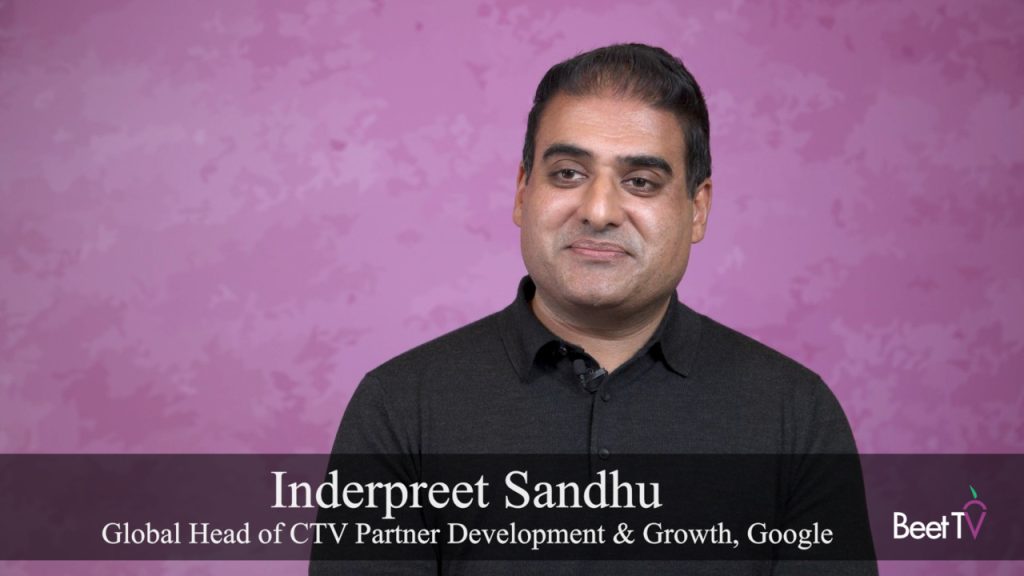WASHINGTON, D.C.-Quality and scale of audience are key to most political advertising campaigns, according to the VP of Business Development at OpenX. “The quality component is really key for buyers because we’re no longer in a world where we’re just trying to buy the audience across any type of content. Ad effectiveness on quality content is key,” Julie Van Ullen said during a panel discussion at the recent Beet.TV summit on politics and advertising.
“Our goal is really to get away what historically has been a guesswork model or demographic-based model around content to an impression-by-impression model across all screens and all app formats,” Van Ullen said in response to a question from panel moderator Matt Prohaska of Prohaska Consulting.
Political buyers in particular seek scale primarily because the audiences they wish to target are niche in nature, Van Ullen explained.
Having created the concept of header bidding—which allows multiple demand-side sources bid for the same publisher inventory at the same time, with the aim of surfacing the best prices—OpenX initially sought to better value inventory and ensure that everyone was competing for it at the proper level.
“But what it’s also done is given insight to publishers about the value of every single impression that runs through their site,” Van Ullen explained. “Rate cards that are ten, fifteen years old are all of a sudden being looked at a bit differently.”
Brands’ first-party data can be layered on top of “any given publisher or the entire OpenX Ad Exchange” and facilitate guaranteed deals at scale, according to Van Ullen.
Asked to describe the future of supply side platforms, Van Ullen said that far from becoming extinct as some headlines have suggested, they must evolve out of necessity.
“The traditional idea of mediating a daisy chain of demand partners that can make pages load slowly and doesn’t really facilitate dynamic competition on an impression-by-impression basis is kind of on its way out,” Van Ullen said.
Companies that fail to make the transition to a direct-to-DSP buying world and still rely on ad networks, and arbitrage and mediation might not survive.
“In a truly RTB world, where you need to be fast in order to transact on an impression level, you can’t be arbitraging, reselling or mediating,” Van Ullen said. “I think some of those models are problematic and you can see them having trouble evolving at this point.”
You are watching videos from Beet.TV politics and advertising summit presented by OpenX along with Intermarkets. Please find additional videos from the series here.






